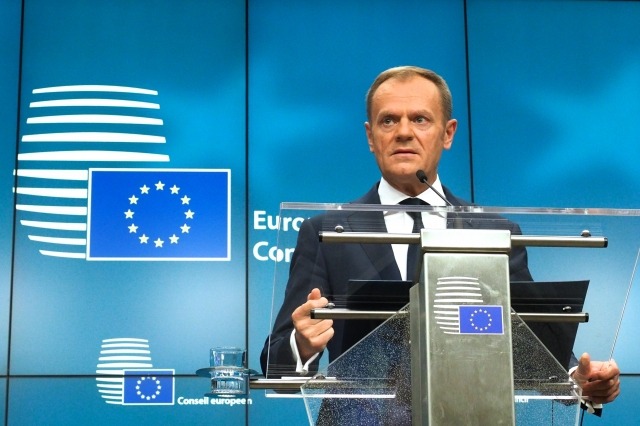The Summit last week adopted conclusions on security and defense, social dimension, education and culture, climate change, and Jerusalem but not on migration policy although the issue was on the agenda. The discussion which was described as frank and sober focused on refugee allocation quotas, an issue where member states still are divided. In 2015, the Council of the European Union adopted a decision to help Italy and Greece cope with the massive influx of migrants. It provided for the relocation of 160,000 persons in need of international protection to other EU member states. Distribution quotas were put in place but several countries have systematically refused to respect them.
In 2016, the Commission proposed a reform of the Dublin Regulation, the cornerstone of the European asylum system, to make permanent relocation of refugees mandatory for all member states.
However, the positions of the member states for and against relocation have hardly changed since then.
The countries of the Visegrad Group - Hungary, Slovakia, Poland and the Czech Republic - are ready to show solidarity with the front line countries but exclude relocation to their own countries. A majority of countries, including Belgium, accept that solidarity can be expressed in different ways but insist that no country can be exempted from sharing the burden.
Belgian Prime Minister Charles Michel was reported to have been in favor of a decision by qualified majority if consensus was not possible.
Prior to the Summit, European Council President Donald Tusk sent a letter to the member states where he analyzed the migration policy and posed a number of questions to them.
“The migration challenge is here to stay for decades, especially due to the demographic trends in Africa,” he wrote. “A crisis situation can reoccur and so in order to prepare ourselves, we need to categorically strengthen our migration policy. To achieve this, we should first look at what has and has not worked in the past two years.”
On the issue of migration quotas he stated that “it has proven to be highly divisive and the approach has received disproportionate attention in light of its impact on the ground; in this sense it has turned out to be ineffective.”
The statement was seen as controversial and Tusk made an effort in his concluding remarks after the Summit to stress that he had received positive answers to his questions as to readiness to work in consensus.
He admitted that “mandatory quotas remain a contentious issue” but claimed that “its temperature has decreased significantly”. If only for this reason, it was worth raising this topic. “Will a compromise be possible? It appears very hard. But we have to try our very best. We will assess progress in this respect in March, while the leaders want to make decisions in June.”
He mentioned two statistical figures to illustrate the discussion. The first says that out of all the migrants eligible for the relocation, 93 per cent have been distributed among EU member states. The second figure says that even if 100 per cent of them were relocated, that would still be less than 2 per cent of the total number of people who applied for asylum in the EU.
“The dispute around mandatory quotas is not over yet, but I hope that we have managed to clear the air. Now we need to work hard to find a compromise by June,” he concluded.
O.Apelblat
The Brussels Times

